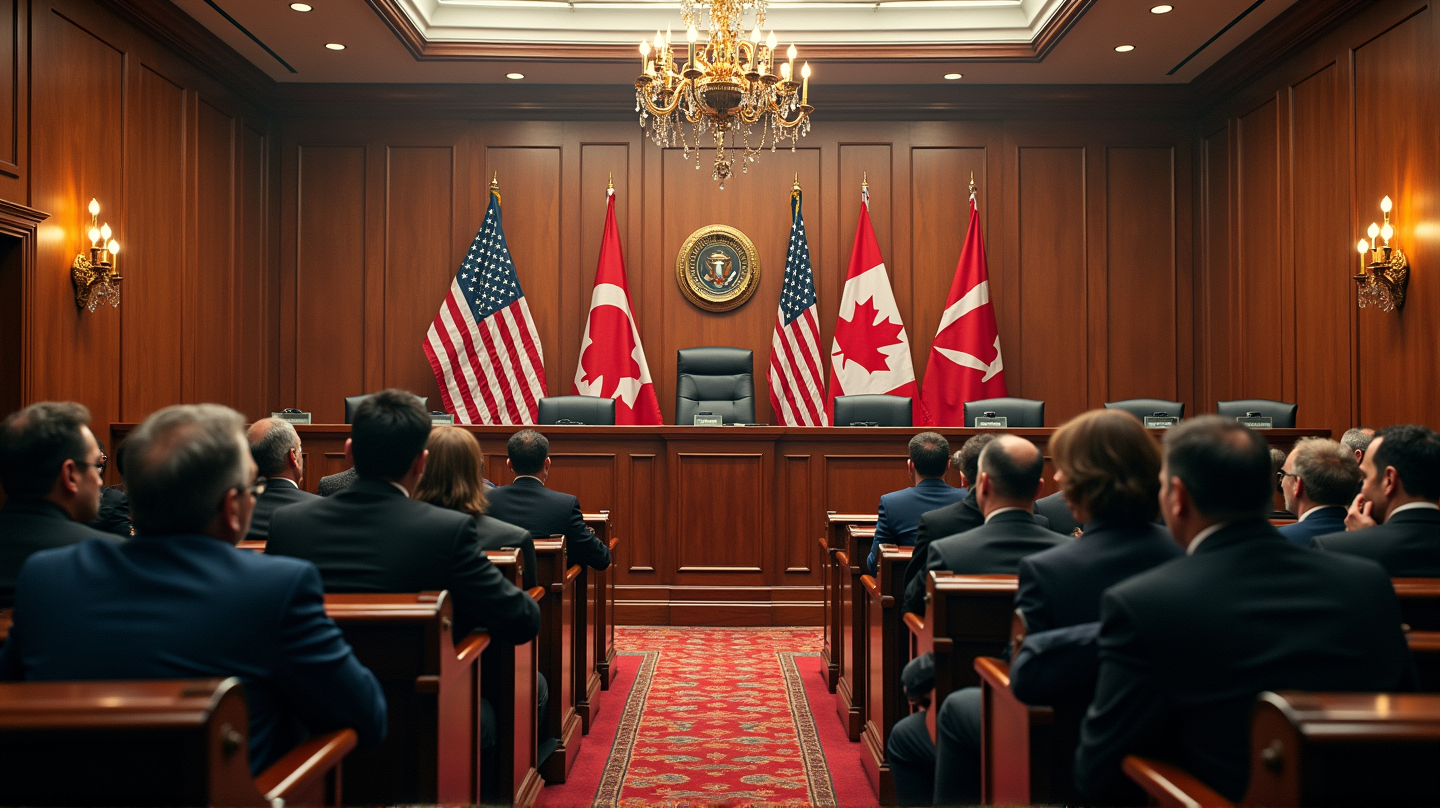Trump's 'Illegal' Tariff Ruling: A Game-Changer for U.S.-Canada Trade?
Explore the implications of Trump's 'illegal' tariff ruling and the potential ripple effects on U.S.-Canada trade relations.

For traders and policymakers alike, the recent ruling on former President Donald Trump’s tariffs is causing ripples across the North American trade landscape. But what does this mean for the future of commerce between the two neighboring powerhouses? According to Global News, this might just be the beginning of a significant shift in trade dynamics.
The Ruling that Shook the Trade World
U.S. President Donald Trump’s administration is in the spotlight again after a federal appeals court deemed his import tariffs illegal, ruling that he exceeded his emergency powers. As the case ascends to the U.S. Supreme Court, the duties are still in effect, creating a tense trade landscape between the U.S. and Canada.
Implications for U.S.-Canada Trade Relations
The decision holds weighty implications for the future of U.S.-Canada trade. The tariffs, which were originally implemented as a protective measure, are now under scrutiny. As the legal proceedings continue, businesses on both sides of the border remain uncertain about future trade agreements and tariff structures.
Voices from the Economic Frontlines
Experts like economist John Smith suggest that Canada needs to brace itself for potential economic shifts. Smith asserts, “Canada has to wake up,” emphasizing the need for strategic economic adjustments. As both nations navigate these legal and economic waters, the stakes couldn’t be higher.
A Deeper Economic Impact
The tariffs have already impacted sectors such as agriculture and manufacturing. Reports indicate a contraction in the Canadian economy by 1.6% in the second quarter, coinciding with these contentious tariffs. Businesses must adapt to this new reality, assessing supply chains, pricing, and market strategies.
The Path Forward
While the path ahead remains uncertain, this ruling may serve as a catalyst for renegotiating trade policies. The potential Supreme Court decision could redefine the rules of trade engagement, setting a precedent for handling future international trade disputes.
As the case progresses, U.S. and Canadian stakeholders will be keenly watching, navigating a trade environment where every decision could alter the course of cross-border commerce.





